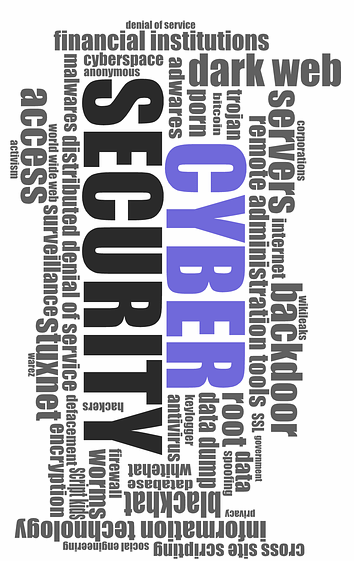Freelancers already know how remote work works. They learned how their circadian rhythm works, and they function in perfect synergy with it.
But what happens with all those office workers, who are forced to work from home in these challenging times?
If you’re a business owner who turned to remote work at this time, you should provide support to your employees. It’s not just about remote work productivity. It’s mostly about security. Your employees will be accessing important business files from home. If any of that data gets compromised, your business will be in trouble.
 1. Do Not Use Unsecured Wi-Fi Networks
1. Do Not Use Unsecured Wi-Fi NetworksAs an employer, you must make sure that your workers have access to a secured Internet connection. Public Wi-Fi networks are out of the question. They expose your workers to cybersecurity threats. Keep in mind that hackers can run free Wi-Fi hotspots to steal your personal details. Use a VPN to encrypt and secure your connection and hide your traffic from hackers. If you are at public place like hotel, airport or shopping center and using public Wi-Fi with a VPN like TrustZone, all of your traffic will be encrypted, so nobody using the same Wi-Fi will be able to read your data or any messages you sent.
If the employer cannot provide computers and the workers must use them for private needs, a Virtual Private Network can be helpful. It will hide the computer’s location. It will also encrypt the Internet traffic, so it will improve the user’s privacy.
If you’re not able to provide secured computers for all your workers, they will have to use their personal devices. Before you allow them to do that, you have to make sure they are using a strong antivirus program.
For everyone who doesn’t have access to paid software, the employer should provide it.
It’s amazing to see how many workers neglect the importance of a secure password on Mac, when it’s been emphasized so many times. They use the same password for every account they have.
An employer has to make sure that the workers have a secure password on Mac and every single program that they use. Otherwise, they would compromise the work and enable hackers to take over all their accounts.
Passwords are not just for programs. The computer must be locked, so other people won’t be able to access it. Remote workers should not share a computer that they use for work. They must use a secure password on Mac, so they will prevent anyone from accessing sensitive data.
VPN, firewall, and malware scanning software must be current and updated all the time. Otherwise, it’s easier for hackers to go undetected for weeks after stealing critical assets.
In the ideal case, employers should provide computers that will only be used for work. If that’s not possible, the workers should be instructed not to use the same device for leisure activities, since it can fall victim to phishing attacks.
Smishing, vishing, and phishing are common practices that aim to credit card fraud. Remote workers spend a lot of time on the Internet, so they are targeted by credit card frauds. Employers should educate their workers about these scams and instruct them NOT to provide their private information to unsecure online sources.
These websites look like the real thing, with unnoticeable differences in the address. The employee thinks they are buying from a secure source, but they are providing credit card information to scammers. This must be avoided, especially when they use computers provided by their employer.
In case any data is compromised or deleted, a backup will save the day. Backups must be performed as frequently as possible.
Most people have never changed the password on their home routers since their installation. Someone might have broken into their network, and they are not aware of it.
Before they start remote work, they should change the router password and set the encryption to WPA2 or WPA3.
Install VPN like TrustZone on your Routers to secure all home devices connected to the Router
A cheap antivirus program is not enough to secure their system. A firewall is an essential addition that creates a barrier between the Internet and the device. It keeps the computer safe from malicious programs.
A strong password is necessary, but it may not be enough. Two-factor authentication provides double security. It’s boring, but it’s a must when workers access sensitive data.
When employers ask their workers to do their job from home, they should provide electronic signatures that ensure document safety. In addition, they should have an IT support team, which would respond to risky situations on time.
Employers should provide regular customer feedback, so the workers will know if there are any security issues, and they will know how to react in such instances.
Stay Safe
Take that tip not only for your physical health and wellbeing, but for your online activities as well.
Remote workers have a huge responsibility to keep data safe at all times.
Author Bio:
James Dorian is a technical copywriter. He is a tech geek who knows a lot about modern apps that will make your work more productive. James reads tons of online blogs on technology, business, and ways to become a real pro in our modern world of innovations.